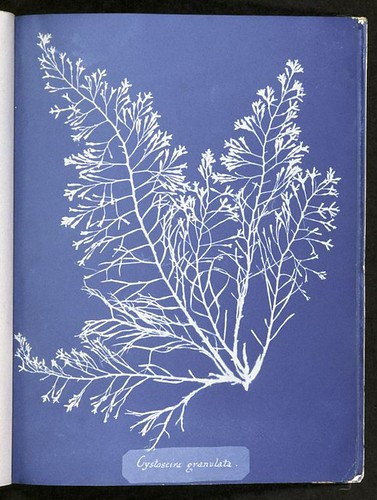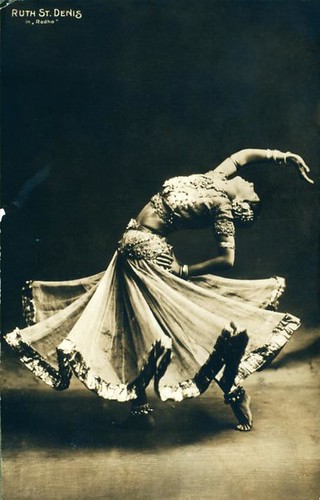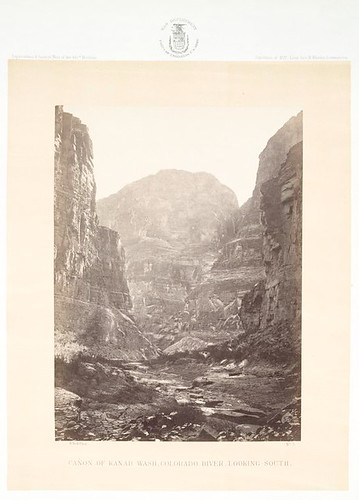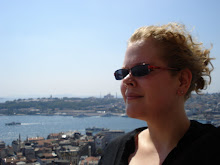Flickr is something that we have talked about often, and it a program that I know little about - though I have uploaded some photos, I have yet to figure out any special features or cool tricks.
The New York Library has posted a thousand photos in the Flickr Commons and, in doing so, has significantly increased the availability of their resources.
And how beautiful they are! The NY Public Library thinks of this as "a sort of appetizer course, a sampler of collections accessible in greater breadth and depth on the NYPL Digital Gallery, and on-site in our network of libraries." There is really no greater tool at the disposal of libraries in the displaying and publicizing of their photographs.
I think that Christa is correct here: What about our little collection downstairs? No one ever takes a look at those pictures and, let's face it, we do not have the resources to preserve them for the long haul. But, if we were to digitize them and make them public some how (either with Flickr or a program on our website), we will have made them instantly usable.
By making these things available, libraries are able to reach that wider audience that we are always striving for!
Wednesday, December 17, 2008
Saturday, December 13, 2008
Tuesday, December 2, 2008
Monday, December 1, 2008
Library Imagination from Years Past

I follow a blog, called Modern Mechanix, which scans all of these amazing old advertisements, the more quarky and unique, the better. Today's addition is one that caught my attention.
I wonder if someday all of our forward looking and predicting will look as silly. To be honest, I hope so! That means we were actually making an effort and keeping our eyes to the future - never content with the status quo.
**** Update 12/2/08: Here is the BoingBoing Blog post about the same thing! ****
Cool Libraries of the Future
This is pretty... uh... interesting. Check out the plans for the Goucher College Library.
Treadmills in the library? I supposed that it is not a bad idea because one of the most important parts of mental retention is to exercise - get the blood flowing. The logistics would be a nightmare - electricity, noise control, and how do you prevent someone from sweating all over the books? Though, I always go to the gym with a magazine - is that really so different?
Treadmills in the library? I supposed that it is not a bad idea because one of the most important parts of mental retention is to exercise - get the blood flowing. The logistics would be a nightmare - electricity, noise control, and how do you prevent someone from sweating all over the books? Though, I always go to the gym with a magazine - is that really so different?
Tuesday, November 11, 2008
Reference Extract
Now, I am sure most of you saw this on iLibrarian, but I think it is an amazing idea!!! I'm talking about the Reference Extract project which is attempting to make a search engine as good as Google in finding items but one which weights the results as a librarian would.
A while back, I wrote about an article regarding Human Power Searching. I quoted the author as saying "You cannot persuade people to break their Google habit until your searches are better than Google for most cases (not just the few cases where you specialize)." I think that this is the first effort that has the possibility to succeed in this endeavor. I am really excited to hear more about this project and monitor its progress.
A while back, I wrote about an article regarding Human Power Searching. I quoted the author as saying "You cannot persuade people to break their Google habit until your searches are better than Google for most cases (not just the few cases where you specialize)." I think that this is the first effort that has the possibility to succeed in this endeavor. I am really excited to hear more about this project and monitor its progress.
Sunday, October 26, 2008
Jay Walker's Library
A big thanks to Gina for posting the "Browse the Artifacts of Geek History in Jay Walker's Library" article.
I have not stopped drooling over those photographs of Jay Walker's personal library and I find myself coming back to them, over and over again! The photographs reminded me strongly of the old curiosity museums which were jammed full of unique objets and revolting specimens. In addition to being wooed by the view, I loved his book philosophy! To him, book's impact is most important and that is why he only selects books that revolutionized knowledge in some way. Now that is an interesting way to direct one's book collecting, and lends itself well into creating a space full of imagination and intrigue.
Can you imagine spending a couple of hours exploring that place? What I wouldn't give!
I have not stopped drooling over those photographs of Jay Walker's personal library and I find myself coming back to them, over and over again! The photographs reminded me strongly of the old curiosity museums which were jammed full of unique objets and revolting specimens. In addition to being wooed by the view, I loved his book philosophy! To him, book's impact is most important and that is why he only selects books that revolutionized knowledge in some way. Now that is an interesting way to direct one's book collecting, and lends itself well into creating a space full of imagination and intrigue.
Can you imagine spending a couple of hours exploring that place? What I wouldn't give!
Encyclopedia of Life
I found this article rather interesting: "An Interview with E.O. Wilson, the Father of the Encyclopedia of Life." This is exactly what libraries are trying to do in digitizing their information. It seems to me that there is something to be said about the mission to make all information available to all people at all times. That is what the Encyclopedia of Life is attempting to do - catalogue all types of life on Earth into one mega resource! Not only is this a great jumping-off point for libraries, but it is an example (or it will be) of how we can start to combine our digital resources with that of other libraries.
Saturday, October 18, 2008
Computer Tricks, part deux
Here is another article in line with the computer tricks one I posted a few days ago. In this article, "The 18 Things You Need for Your Computer," Farhad Manjoo examines his most used computer apps and talks about why they are important. This article, besides confirming some of my habits (Google Reader has saved me hours already in the month I have been using it) and giving me some new ideas (Picasa and Mint, to name a few), does offer some brilliant time saving applications that are useful when venturing into the 1.0 and 2.0 web worlds.
Sunday, October 12, 2008
Blogs in the Classroom
Now that I have been exposed to the joys of iLibrarian (brilliant!), I've found myself trolling through some of the back posts. The one about the article, "Avoiding the 5 Most Common Mistakes in Using a Blog with Students," really started me thinking about the classes I have had and the way in which my teachers have used or misused that type of technology. The UW uses a blackboard program that, besides crashing every other day, I have never seen used correctly. Using a Blog with a class... now that is an interesting notion. In fact, I had a particularly horrible blackboard experience in my Russian 200 class. The Professor posted handouts for us to print and videos for us to watch in a disorganized and disjointed manner, that was only compounded by the fickle nature of the system. Now, if she had used a Blog, that would have been a much more productive tool - something that she could operate outside of the school's system (meaning those of us who lived off campus could access it from home) and still create a very usable posting method.
A light bulb went off when the author, Ruth Reynard, wrote "The essential difference between a blog and other online tools is that it is intended to be an individual publication: a one-way monologue or self-post to which others may comment but do not contribute." I think that is a distinction that I had never before made and that I will apply when evaluating blogs and wikis in the future - the blog is much more like a classroom, with a teacher teaching and students commenting; whereas the wiki is more of a study group where people are more interested in communicating with each other on an equal playing field.
All of this is easily applied to our library blogs and wikis. And, I have to say, that I think we've got it right so far. Go team! It would be interesting to see if a library blog would work - one that was written by us for the public.
A light bulb went off when the author, Ruth Reynard, wrote "The essential difference between a blog and other online tools is that it is intended to be an individual publication: a one-way monologue or self-post to which others may comment but do not contribute." I think that is a distinction that I had never before made and that I will apply when evaluating blogs and wikis in the future - the blog is much more like a classroom, with a teacher teaching and students commenting; whereas the wiki is more of a study group where people are more interested in communicating with each other on an equal playing field.
All of this is easily applied to our library blogs and wikis. And, I have to say, that I think we've got it right so far. Go team! It would be interesting to see if a library blog would work - one that was written by us for the public.
Communist Library Threat!
I saw this on the Colbert Report the other night, and thought y'all would get a kick out of it!
Saturday, October 11, 2008
Computer Tricks
Here is a cool article from the NY Times with some interesting shortcuts and hints for us savvy computer users. I'll admit that there were many I didn't know and a couple I am going to start using all the time!
Human Powered Search
This article, What is the Future of Human Powered Searching?, was mentioned in this week's ALA Online. The author brings up some very good points in regards to the pros and cons of this type of Internet searching - when done correctly Human Powered Searching easily overcomes the pros of other searching types and is the only way to deal with cons. He hit it home for me when he said, "You cannot persuade people to break their Google habit until your searches are better than Google for most cases (not just the few cases where you specialize)." I think that is the key and something that can be easily applied to libraries - if we, meaning our databases and search engines, can't be better than Google then there is no way were are going to convince the public or the students to use us.
An aside: I had never heard of Mahalo before and it appears to be everything you want in a fluffy, general search engine.
An aside: I had never heard of Mahalo before and it appears to be everything you want in a fluffy, general search engine.
Wednesday, October 8, 2008
Pandora
Something I was going to bring up today in the 2.0 meeting was this wonderful thing called "Pandora." Have you heard of this yet? I hope you have because it has completely changed my online music listening!
It is part of the Music Listening Genome Project which seeks to determine what it is about music that certain people attach to and are repulsed by. For example, I apparently I like infectious, guitar-centered melodies, lyrics-based music with a quasi New York post-punk sound. What that means, exactly? I don't know, besides it confirming that I love R.E.M. and Ben Folds.
You create a free account and then you create a station (you can have many for all of your different moods) by entering a band or a musician that you really enjoy. The site then plays music by bands and artists that have a similar music-type breakdown. If you like the song playing you give it a thumbs up, if not, a thumbs down. This lets the project know when it is off base in its music selection and then it adjusts your preferences. The cool thing about this experiment is that the more you listen to a station, the more personalized and exact the station becomes. Then you can share it with friends or with people who enjoy the same music as you do. Also, you can bookmark songs and artist so that you can come back to them later. It is the best way I've found to expand your music repertoire for free.
I am not really sure how this could be applied to the library, but I thought that it was a very interesting project that has helped me through many hours of studying! I warn you, it is addictive!
It is part of the Music Listening Genome Project which seeks to determine what it is about music that certain people attach to and are repulsed by. For example, I apparently I like infectious, guitar-centered melodies, lyrics-based music with a quasi New York post-punk sound. What that means, exactly? I don't know, besides it confirming that I love R.E.M. and Ben Folds.
You create a free account and then you create a station (you can have many for all of your different moods) by entering a band or a musician that you really enjoy. The site then plays music by bands and artists that have a similar music-type breakdown. If you like the song playing you give it a thumbs up, if not, a thumbs down. This lets the project know when it is off base in its music selection and then it adjusts your preferences. The cool thing about this experiment is that the more you listen to a station, the more personalized and exact the station becomes. Then you can share it with friends or with people who enjoy the same music as you do. Also, you can bookmark songs and artist so that you can come back to them later. It is the best way I've found to expand your music repertoire for free.
I am not really sure how this could be applied to the library, but I thought that it was a very interesting project that has helped me through many hours of studying! I warn you, it is addictive!
Time to Get Cracking!
Alright, alright, I haven't posted anything since my first week. However, this is something that I am going to rectify tonight by getting you all up to speed about my latest 2.0 ventures!
1. I am obsessed with RSS feeds! Why have I not discovered these much, much sooner?
2. I have a Delicious account (HeatherVM), though I have not had the opportunity to use it much.
3. I have a Flikr account (HeatherVM).
4. I am also obsessed with Google Reader, though I cannot get the tabs to work correctly in the iGoogle.
1. I am obsessed with RSS feeds! Why have I not discovered these much, much sooner?
2. I have a Delicious account (HeatherVM), though I have not had the opportunity to use it much.
3. I have a Flikr account (HeatherVM).
4. I am also obsessed with Google Reader, though I cannot get the tabs to work correctly in the iGoogle.
Wednesday, August 6, 2008
Welcome to my first post!
Though not the most exciting of news, I would like to share with you an interesting event that is going to be taking place at the Seattle Public Library this Friday (Aug. 8th). The Sandbox Reading Series is going to be staging a reading of "Who's Afraid of Virginia Woolf," one of my all time favorite plays. This is an interesting format for the play because it is a reading, not a dramatization. They stick very close to the original text and let the words speak for themselves. I've seen them perform many times before and I am never disappointed. Their respect and love of the book shows in every look, gesture and word.
The production starts at 7:30 - and is free!
And here concludes my first post... now to mess around with the colors and design!
The production starts at 7:30 - and is free!
And here concludes my first post... now to mess around with the colors and design!
Subscribe to:
Posts (Atom)







